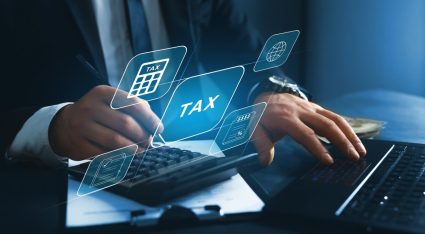International Program in Revenue Automation,
Innovation and Tax Governance
24 – 28 November 2025
Sandton Johannesburg South Africa

Register Now! Limited Seats Available!
R19, 999.00 Per Delegate
Overview
Tax administrations across the globe are undergoing a rapid transformation, driven by the forces of digitalization, globalization, and the ever-increasing need for efficient and transparent revenue collection. Traditional manual systems and fragmented processes are no longer sufficient to address the complexities of modern taxation, combat revenue leakages, or meet the expectations of digitally empowered taxpayers.
The International Program in Revenue Automation, Innovation and Tax Governance is designed to equip revenue authorities with the knowledge, tools, and strategies required to successfully navigate this new landscape.
Participants will explore automation tools such as electronic invoicing, real-time reporting, and integrated taxpayer systems; innovative approaches including artificial intelligence, big data analytics and governance frameworks that ensure transparency, accountability, and adherence to international tax standards. The program emphasizes both technical capacity and institutional transformation, preparing revenue administrations to meet the challenges of the digital economy, cross-border taxation, and global cooperation.
Program Objectives:
By the end of this program, participants will be able to:
• Understand global trends in revenue automation and digital taxation.
• Apply innovative solutions to enhance taxpayer services and compliance monitoring.
• Strengthen governance, accountability, and risk management in tax systems.
• Evaluate and implement automation tools for revenue collection, audits, and data analytics.
• Enhance inter-agency collaboration and international tax cooperation.
• Design strategies for digital transformation in revenue authorities.
Who Should Attend:
• Senior managers and officers of revenue authorities.
• Tax auditors and compliance managers.
• ICT, data analytics, and innovation units in tax administrations.
• Legal and policy advisors in revenue governance.
• Quality assurance and risk management officers.
• International tax experts and consultants.
Program Outline:
Module 1: Global Trends in Taxation and Revenue Automation
• The digitalization of tax administration: opportunities and challenges.
• E-taxation and global practices in digital revenue collection.
• Role of automation in strengthening tax compliance.
• Case studies: OECD, African Tax Administration Forum (ATAF), and EU models.
Module 2: Taxpayer-Centric Innovation
• Digital platforms for taxpayer services.
• Mobile tax payment solutions and e-filing systems.
• Enhancing taxpayer education and awareness through technology.
• Behavioral insights and taxpayer experience design.
Module 3: Tax Data Analytics and Artificial Intelligence
• Big data analytics in tax administration.
• Using AI and machine learning for risk profiling and fraud detection.
• Predictive analytics for revenue forecasting and compliance monitoring.
• Case applications in VAT, income tax, and excise tax compliance.
Module 4: Digital Tools for Compliance and Enforcement
• Electronic invoicing and real-time reporting.
• Blockchain in tax administration and digital identity management.
• Automated risk-based audit systems.
• Integration of customs and domestic tax systems.
Module 5: Revenue Governance and Accountability
• Principles of good tax governance.
• Strengthening transparency and reducing corruption in tax administration.
• Legal and ethical frameworks for digital taxation.
• Building trust between taxpayers and authorities.
Module 6: International Tax Cooperation and Innovation
• Transfer pricing and Base Erosion and Profit Shifting (BEPS) frameworks.
• Cross-border tax data exchange and cooperation.
• Digital economy taxation and challenges of global platforms.
• International standards and collaborative approaches (OECD, UN, ATAF).
Module 7: Cybersecurity and Data Protection in Tax Systems
• Cybersecurity risks in automated revenue systems.
• Data privacy laws and compliance.
• Best practices in securing digital revenue platforms.
• Incident response and crisis management.
Module 8: Change Management and Digital Transformation
• Managing institutional change in tax authorities.
• Building digital leadership and innovation culture.
• Capacity building for staff in automation and governance.
• Roadmaps for digital transformation in revenue administrations.
Module 9: Case Studies and Practical Exercises
• International best practices in revenue automation.
• Country case studies: Kenya, Rwanda, Estonia, Brazil, South Korea.
• Group work: Designing a digital tax innovation roadmap.
End of the workshop
IN HOUSE AND ONLINE TRAINING

While both In-House and Online training can present with cost-effectiveness and time-efficacy, there are some very specific differences between in-house courses and those based online.
The demand for additional courses by individuals or groups of people is increasing. Still, it depends entirely on the preferences of a person what type of training he or she wants to receive. Online courses and in-house training carry some similarities but they are considered to exhibit some very pivotal differences too. Despite that, both types of learning can be really beneficial for attendees.
For Registration and other Training arrangements,
contact us on the detail below.
SOUTH AFRICA : +27 11 057 6001
TANZANIA Cell: +255 769 688 544
WhatsApp +27 79 574 0389
info@bmktraining.co.za / www.bmktraining.com
